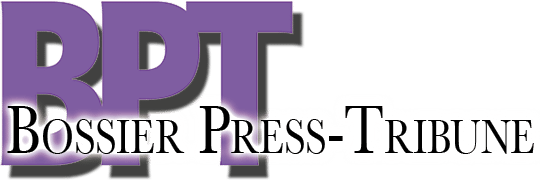By Avery Sams
LSU Manship School News Service
A high-profile rift between Governor Jeff Landry and Louisiana Insurance Commissioner Tim Temple has erupted into public view, intensifying one of the most consequential policy fights of the 2025 legislative session — how to curb the state’s soaring insurance rates.
The two statewide officials have exchanged opposing views in dueling news conferences and back-to-back testimonies before the House Committee on Insurance. The conflict now heads to the House floor as early as Monday, where a suite of insurance reform bills await heated debate.
At the center of the disagreement is House Bill 576, backed by Gov. Landry, which would grant the insurance commissioner greater authority to deny excessive rate increases and discretion in determining what constitutes unfair pricing.
“What we are here today to talk about is giving the insurance commissioner the ability to hang a Sword of Damocles over insurance companies,” Landry said during his April 16 testimony. “The bill is not designed as a hammer for the insurance commissioner, the bill is designed as a safeguard.”
But Temple, who was elected in 2023 without opposition and is not a Landry appointee, sharply pushed back against the measure.
“I think the system we have works,” Temple stated plainly, rejecting the notion that he or future commissioners need more power to regulate the industry.
Despite Temple’s objections, the committee advanced HB 576 on a 13-4 vote.
The feud is unusual in a state where public disagreements between governors and other statewide officials are rare. It also underscores a larger philosophical divide between Landry’s aggressive reform agenda and Temple’s more industry-aligned approach.
Landry has framed his approach as a “balanced” one, urging reforms that require accountability from both insurance companies and the trial lawyers who sue them. Temple, by contrast, warns that tightening regulatory power could deter insurers from entering or staying in Louisiana’s fragile market.
“We’re trying to promote and encourage companies to come to Louisiana,” Temple said. “We shouldn’t be telling people this is a magic thing that will fix everything because it won’t.”
The debate extends beyond HB 576. House Bill 248, sponsored by Rep. Roger William Wilder III, R-Denham Springs, would also expand the commissioner’s discretion — in this case, regarding what information insurance companies must publicly disclose. Temple again opposed the bill, warning that a lack of clear standards could create uncertainty.
“My issue is about power,” said Ronnell Nolan, president and CEO of Health Agents for America, echoing Temple’s concern. “The bill lacks a standard of what the commissioners can do and can’t do.”
Despite his opposition to Landry’s flagship proposals, Temple has backed other legislation moving through the session. One such bill, House Bill 440, would eliminate the mandatory use of a plaintiff’s health insurance after a car accident. Under the bill, if a plaintiff declines to use their health insurance, a defendant in a lawsuit could argue the plaintiff failed to mitigate damages.
Temple also supports House Bill 379, which would allow consumers to resolve property insurance disputes through binding arbitration. Policyholders who opt into arbitration would receive a discount on their premiums, but would be required to waive their right to sue in court.
Critics, including trial attorney Luke Williamson, argue that arbitration clauses may exploit consumers’ lack of legal understanding.
“I think it could increase the lawsuit process because it’s [arbitration] too complicated,” Williamson warned.
But Rep. Gabe Firment, R-Pollock, defended the bill, saying, “Aren’t we to the point in our state where we can trust people to make decisions for themselves?”
Among the few proposals with broad consensus, House Bill 549 passed unanimously out of committee. The bill would offer premium discounts for commercial vehicles equipped with dashboard cameras and telematics systems. Supporters say the move could help reduce frivolous lawsuits and improve safety on Louisiana’s roads.
As these bills move toward full House debate, the divide between Landry and Temple continues to loom large — a political showdown with real stakes for policy, pocketbooks, and the future of Louisiana’s embattled insurance market.


